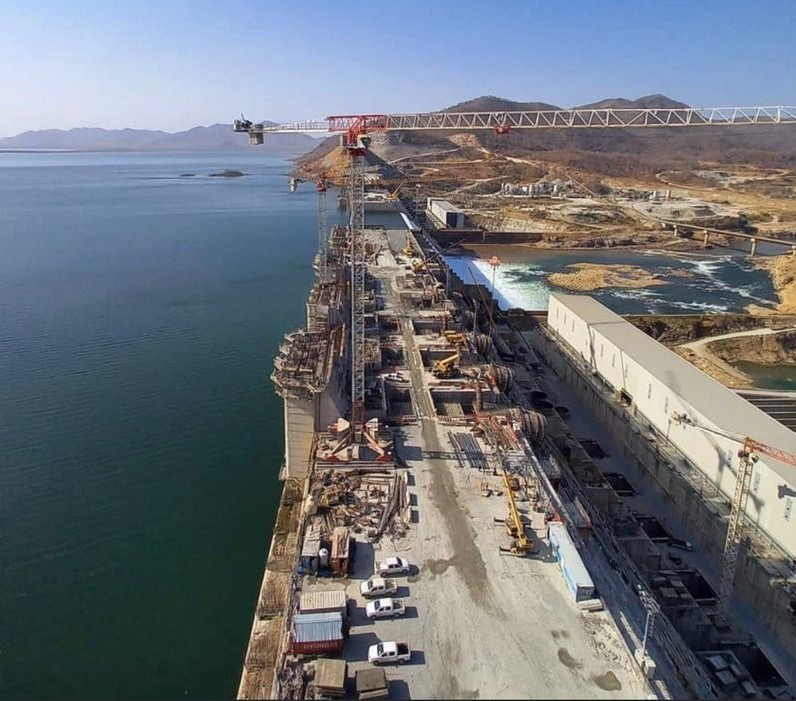
Minister of Water Resources and Irrigation Hani Sewilam said that Egypt is closely watching Ethiopia regarding its unilateral measures over the Grand Ethiopian Renaissance Dam (GERD).
Sweilem warned Addis Ababa against harming Egypt’s water security, and said that Egypt’s state institutions will not allow it.
In press release on Saturday, the minister asked: “How can Ethiopia declare its commitment to protecting the needs of Egypt and Sudan, while at the same time deducting 26 billion cubic meters from the Nile water in the fourth filling?!”
Egypt is the one that opened the negotiating path, he noted, but was unable to reach an agreement over 12 years of talks with the Ethiopian side regarding the filling and operation of the dam.
There is no information about the final design details regarding the GERD, he said.
“We cannot estimate its level of safety, and this remains a legitimate concern,” Sewilam warned, adding that the collapse of GERD would wipe out Sudanese dams, impacting 150 million citizens in Egypt and Sudan.
Sewilam revealed that Egypt had not agreed on terms related to filling the dam, accusing Ethiopia of including other issues in the negotiations, out of a desire to dominate the Blue Nile.
GERD negotiations between Egypt, Sudan and Ethiopia have once again reached a dead end, after the end of the fourth round of talks in Addis Ababa held earlier in December.
Egypt on Tuesday announced the end of the fourth and final meeting of the negotiations process, and said that it sees the project as a threat to the water supplies of Egypt and Sudan.
Egypt and Sudan have repeatedly asked Addis Ababa to stop filling the GERD, until an agreement is reached on how it will operate.
Ethiopia continues filling the dam without any agreement on solutions regarding rules of filling and operation.
Egypt considers the dam an existential threat, as it depends on the Nile for 97 percent of its water needs.
In light of the large increase in water demand and high water deficit rates, the state has resorted to agricultural wastewater treatment projects to cover the deficit in water supplies needed for agricultural projects in new reclamation areas.




